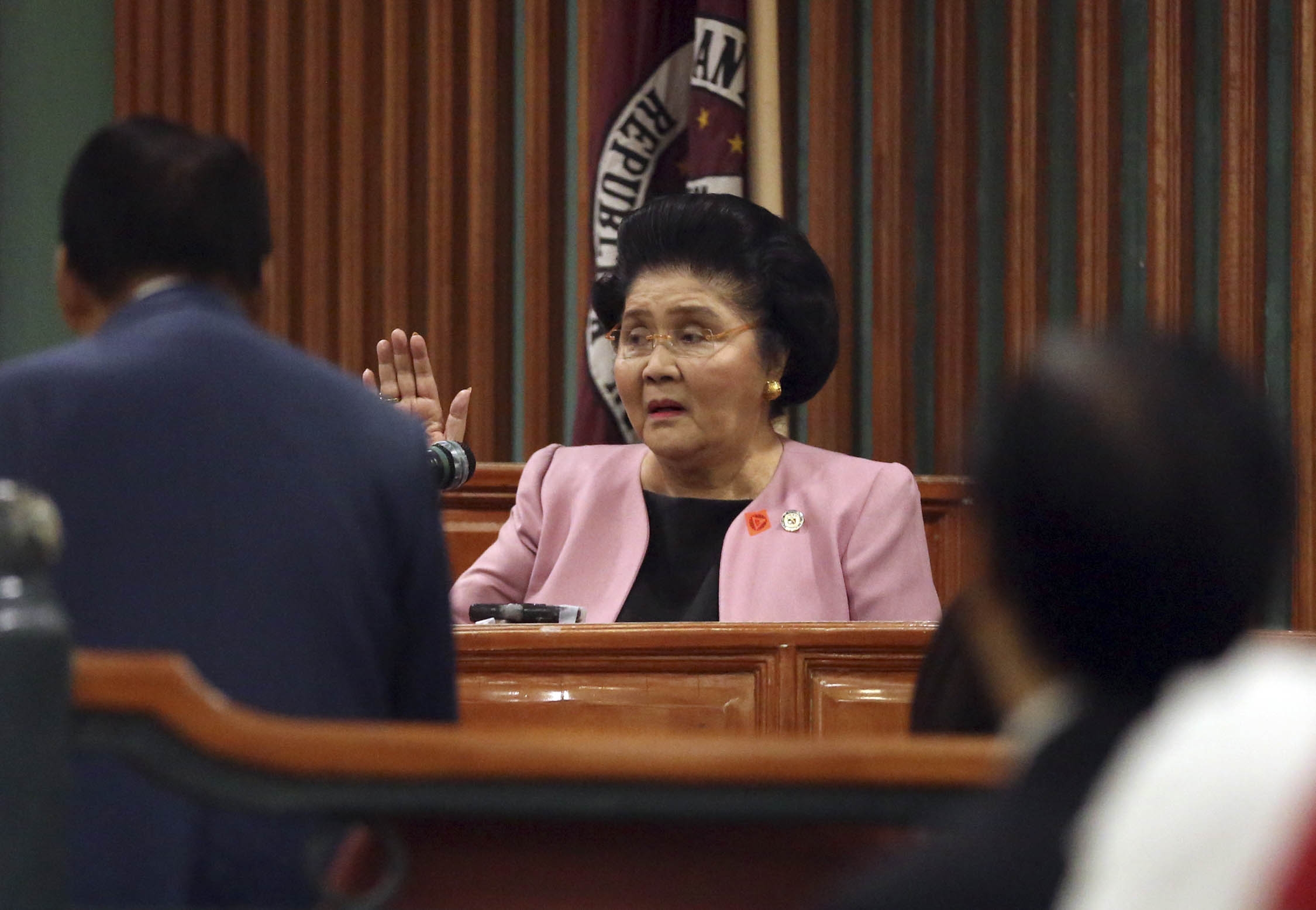
Imelda Marcos
MANILA, Philippines — The Duterte administration has decided to reject a US court-supervised deal to split with a group of martial law victims $20 million from the proceeds of the sale of ill-gotten paintings of former first lady Imelda Marcos that were recovered from her aide in New York in 2013.
The Office of the Solicitor General (OSG) on Wednesday disclosed that it had found the terms of the proposed deal “grossly disadvantageous to the government and not in accord with existing Philippine laws and jurisprudence.”
The OSG, Department of Justice (DOJ) and Presidential Commission on Good Government (PCGG) decided to make a common stand during a case conference on March 11.
“The three agencies unanimously agreed that, in the best interest of the Republic, it will no longer enter into the settlement agreement,” the OSG said in a statement.
“The PCGG was tasked to inform the New York District Court under Judge Katherine Failla of the government’s final decision through a letter dated March 16,” it added.
Talks with victims
The PCGG apparently entered into negotiations with human rights victims who won a $2-billion class suit against the estate of the late strongman Ferdinand Marcos in the US District Court in Hawaii in 1995.
Their American lawyer, Robert Swift, announced last week that Hawaii District Court Judge Manuel Real had approved a deal that granted a $13.75-million settlement to the victims.
The settlement would be charged against the proceeds of the sale of four paintings, including one of Impressionist master Claude Monet’s famous “Water Lily” series, that were among Imelda Marcos’ famed artwork collection that disappeared after the downfall of her husband in 1986.
The paintings surfaced in July 2013 after the arrest of her former aide Vilma Bautista.
Bautista is serving a six-year jail sentence after a New York jury found her guilty of conspiracy and tax fraud from the black market sale of Monet’s “Le bassin aux nympheas” (Water Lily Pond) in 2010 and the attempted sale of three other paintings that are on the Philippine government’s list of stolen artworks.
Swift said Judge Real authorized on March 28 the distribution of $1,500 to each of 6,500 registered martial law victims in the class suit.
Three-way sharing
Under the proposed agreement, the victims would receive a total $13.75 million from the sale of the paintings, the government would get $4 million while the remainder would be split by Golden Buddha Corp. and the estate of Roger Roxas, who discovered the so-called Yamashita treasure.
The PCGG had requested authority from Malacañang to enter into a settlement agreement of the interpleader case in the New York District Court.
According to the OSG, the Office of the Executive Secretary, in a memorandum dated Jan. 8, approved the PCGG’s request but “required that before the PCGG can enter into the settlement agreement, both the OSG and the DOJ shall approve its terms.”
“The OSG reviewed the terms of the proposed settlement agreement. Unfortunately, the terms were found to be grossly disadvantageous to the government and not in accord with existing Philippine laws and jurisprudence,” it said on Wednesday.
It said it issued its disapproval in a letter dated Jan. 23, and a case conference was held among lawyers of the OSG, DOJ and the PCGG on March 11 “to finally settle the issue.”
The OSG clarified that the decision was jointly made, after acting PCGG Chair Reynold Munsayac was quoted as saying that Failla had been informed that the OSG did not approve of the deal.
PCGG position
Since it was created shortly after the 1986 popular revolution that toppled the Marcos dictatorship from power, the PCGG has taken the position that all recovered ill-gotten wealth should be returned to the national coffers.
The PCGG had previously said the $2-billion award had to be enforced against the Marcos family and not against recovered ill-gotten Marcos assets, so the paintings should be returned to the Filipino people since these are part of the Marcos loot.
The government has distributed compensation to thousands of victims of Marcos’ martial law through an P8-billion compensation fund created from the recovered Swiss bank deposits of the Marcoses.